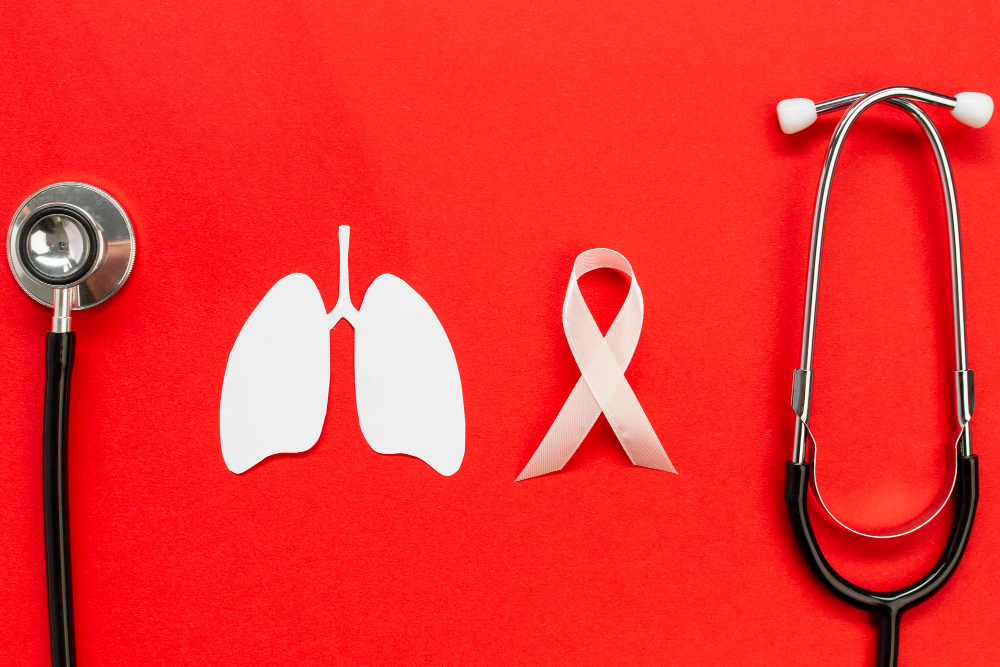Lung Cancer

Lung cancer is a severe and often fatal disease that originates in the tissues of the lungs, primarily affecting the air passages. It is one of the leading causes of cancer-related deaths worldwide. The two main types of lung cancer are non-small cell lung cancer (NSCLC), which accounts for about 85% of cases, and small cell lung cancer (SCLC), which is more aggressive and rapidly spreading.
The primary risk factor for lung cancer is smoking, responsible for the majority of cases. Other risk factors include exposure to secondhand smoke, radon gas, asbestos, and other carcinogens. Genetic predisposition and a history of lung diseases also contribute to the risk.
Symptoms of lung cancer often do not appear until the disease is advanced, making early detection challenging. Common symptoms include a persistent cough, coughing up blood, chest pain, shortness of breath, unexplained weight loss, and fatigue. Regular screening, especially for high-risk individuals, is crucial for early detection.
Treatment options for lung cancer depend on the type, stage, and overall health of the patient. They can include surgery to remove the tumor, radiation therapy, chemotherapy, targeted therapy, and immunotherapy. Advanced treatments aim to target specific cancer cells and improve patient outcomes.
Research continues to advance in understanding lung cancer biology and developing more effective treatments. Preventive measures, such as smoking cessation, avoiding exposure to known carcinogens, and regular health check-ups, are vital in reducing the risk of lung cancer. Supportive care, including counseling and rehabilitation, is essential to address the physical and emotional challenges faced by lung cancer patients.


